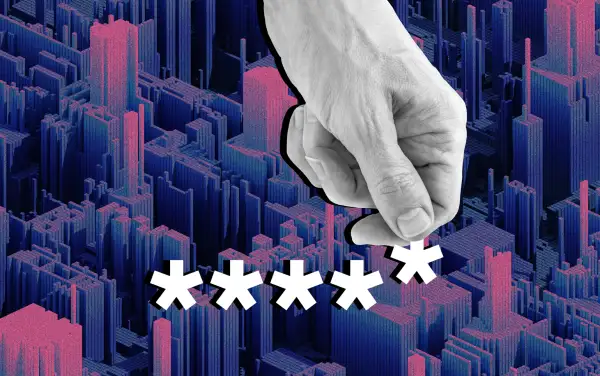The 25 Worst Cities for Identity Theft So Far This Year

For victims of identity theft, 2024 is shaping up to be another devastating year.
Americans have lodged more than half a million complaints of identity theft in the first half of 2024, according to the latest data from the Federal Trade Commission (FTC). Residents in certain cities — especially ones in Florida and Georgia — may be particularly vulnerable.
“I don’t think it’s an exaggeration to say it is the biggest non-violent crime issue that we’re facing,” Eva Velasquez, president and CEO of the nonprofit Identity Theft Resource Center, told Money in an October 2023 interview.
As of June, the FTC’s database contained over 550,000 complaints related to identity theft, putting 2024 on track to exceed 1 million complaints nationwide. (The FTC's database is the most comprehensive tool to track identity theft trends in the United States.) Cases of identity theft can run the gamut, but in general, scammers use someone else's personal information to take out a loan, steal government benefits or commit another type of financial fraud.
Annual identity theft complaints have surpassed 1 million before — but only since the COVID-19 crisis, due in large part to rampant theft of pandemic-related benefits programs, like PPP business loans and boosted unemployment insurance. Velasquez says that type of theft is largely over.
Yet identity theft complaints remain elevated, as thieves appear to have changed tactics. Now, credit card fraud has become far and away the most common type of identity theft reported to the FTC, representing about 40% of all cases in the database.
Despite the inundation of complaints over the past few years, Velasquez says identity theft remains “vastly underreported.”
Worst cities for identity theft
Here are 25 metropolitan areas with the most identity theft complaints per capita.
Metro | Complaints per 100,000 residents | Total complaints |
|---|---|---|
Miami, Florida | 417 | 25,434 |
Atlanta, Georgia | 327 | 19,706 |
Las Vegas, Nevada | 284 | 6,332 |
Houston, Texas | 276 | 19,452 |
Las Angeles, California | 263 | 34,678 |
Orlando, Florida | 259 | 6,817 |
Dallas, Texas | 230 | 17,360 |
Baton Rouge, Lousiana | 228 | 1,976 |
Lakeland, Florida | 224 | 1,601 |
Philadelphia, Pennsylvania | 221 | 13,709 |
Killeen, Texas | 215 | 1,005 |
Albany, Georgia | 208 | 311 |
Tampa, Florida | 202 | 6,355 |
Savannah, Georgia | 201 | 809 |
Macon, Georgia | 200 | 467 |
Midland, Texas | 195 | 335 |
Boston, Massachusetts | 194 | 9,543 |
Port St. Lucie, Florida | 193 | 934 |
Columbus, Georgia-Alabama | 192 | 626 |
Beaumont, Texas | 192 | 763 |
Sumter, South Carolina | 187 | 256 |
Naples, Florida | 186 | 692 |
Memphis, Tennessee | 184 | 2,463 |
Odessa, Texas | 184 | 297 |
Chicago, Illinois | 183 | 17,544 |
Cities across Florida and Georgia — the two worst states for identity theft complaints — notably dominate the list.
While identity theft complaints often mirror states' overall crime rates, there are many factors at play. And some industry experts point out that it’s difficult to draw conclusions from the trends in the FTC data. They say complaints are simply an indicator of who is most likely to report identity theft rather than experience it.
Identity theft tips
There are steps you can take to protect yourself from identity theft and manage your money after it has happened. Here's what experts recommend:
- Freeze your credit: Even if you haven’t experienced identity theft, experts say you should freeze your credit as a preventative measure. Whenever you need new credit, you can briefly unfreeze it then freeze it again. That way if your identity is stolen, the thieves won’t be able to open new credit cards or take out loans in your name.
- ‘Embrace skepticism’: Velasquez says folks should “embrace skepticism” when people — who could be identity thieves posing as government or bank workers — contact you asking for information. With artificial intelligence, it’s easier than ever to generate scripts and convincing graphics to make it appear like the request is coming from a valid source. That’s why experts say not to engage with the person if you weren’t the one to initiate contact.
- Use unique passwords: “Up your password game,” Velasquez says, recommending strong and unique passwords across all of your accounts. (That means no repeats.) Password managers can help you create and keep track of your various account credentials. For added protection, she recommends enabling multi-factor identification (MFA) if available. MFA will help verify your identity when you log into an account, typically by emailing, calling or texting you a one-time code that you can use to sign in.
- Get help: Experts say identity theft affects all types of people, across all ages, races and income levels. However, victims often experience deep shame, especially older Americans. That can lead to the problem being internalized and left uncorrected. If you suspect identity theft could have happened to you, there are plenty of free resources available, including nonprofits like Identity Theft Resource Center, which can help you screen potential scams — or recover from one if it’s already happened — at no charge. The FTC also has extensive resources at identitytheft.gov.
Identity thieves often succeed by pressuring you into acting quickly by handing over information or payment now. But no legitimate source is going to mind if you take a little bit of time to verify what they’re telling you or to seek advice.
“Just take a beat,” Velasquez says. “You don’t have to reply, send money, give information away — you can take five minutes to think.”
More from Money:
8 Best Identity Theft Protection Services
Was Every American's Social Security Number Really Just Hacked?
Student Loan Borrowers to Get Relief Checks After $120 Million Navient Settlement




